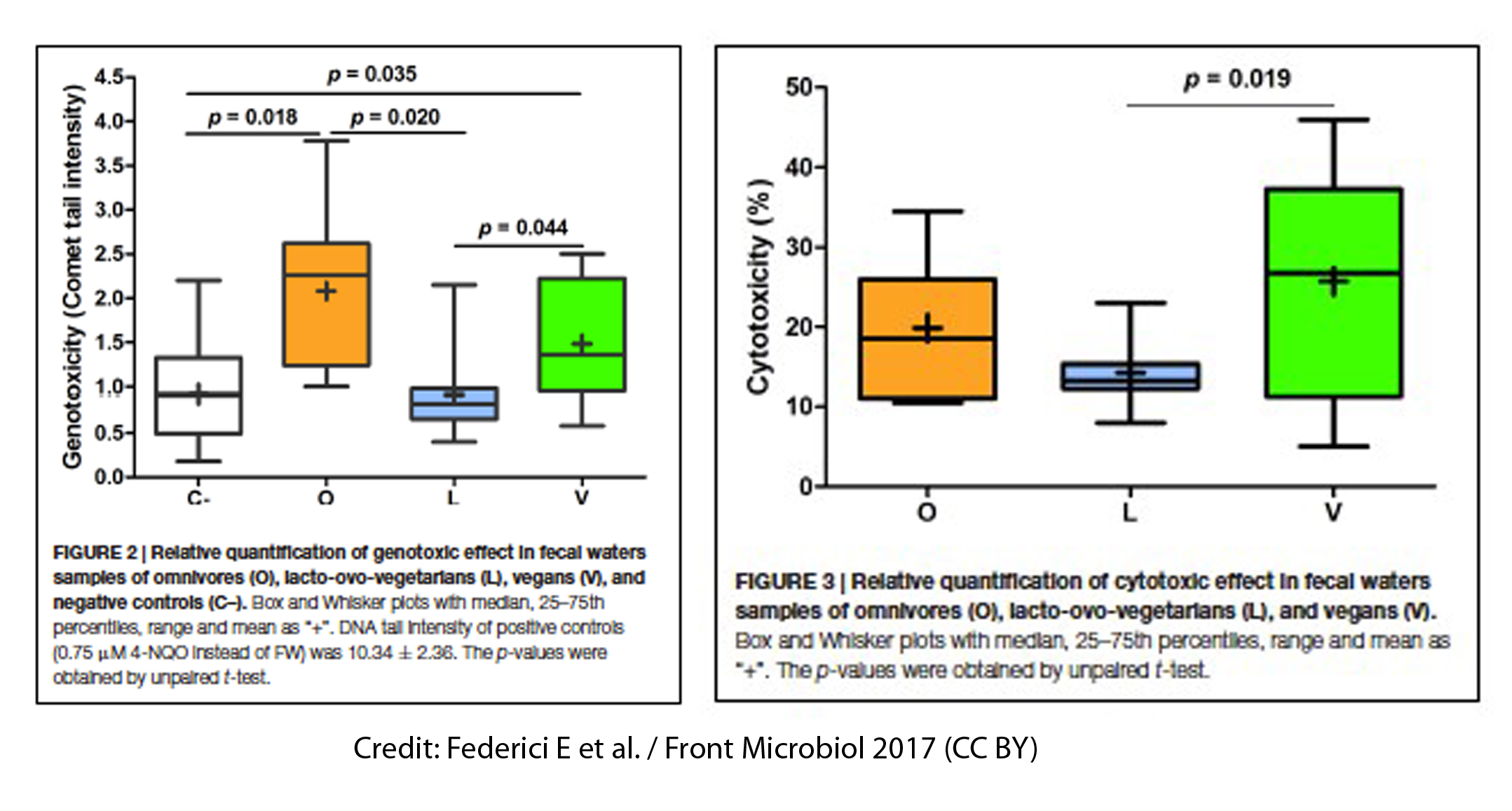Previous research has shown that lifestyle and dietary habits may influence both gut microbiota composition and its possible impact on colorectal cancer (CRC) origin and progression. However, the mechanisms involved in how dietary patterns—in particular omnivorous, vegetarian, and vegan eating habits—impact genotoxic and mutagenic risk markers in the gut have not been fully elucidated.
A recent study, led by Prof. Giovanni Cenci from the Laboratory of Microbiology at the Department of Chemistry, Biology and Biotechnology at University of Perugia (Italy), has found that lacto-ovo-vegetarian diets may modulate gut microbial activity in a way that leads to a significant reduction of gut toxicology biomarkers in healthy volunteers.
The researchers investigated the effects of lacto-ovo-vegetarian and vegan dietary habits, compared to the omnivorous dietary pattern, on selected groups of faecal microorganisms and on genotoxic and mutagenic risk factors in the gut. The prevalence in human faeces of some representative gut bacteria from the four dominant phyla (Firmicutes, Bacteroidetes, Proteobacteria, and Actinobacteria) and faecal water genotoxicity and cytotoxicity -considered as biomarkers for the risk of CRC and other chronic intestinal pathologies- were analysed in 29 healthy volunteers of normal weight from Parma (North Italy) that followed omnivorous (n = 7) -includes both plant and animal foods-, lacto-ovo-vegetarian (n = 12) -includes dairy products, eggs and plant foods but no meat, fish or poultry-, or vegan (n = 10) -includes only plant foods- diets.
Although the relative differences in viable bacteria among dietary groups were not statistically significant, lacto-ovo-vegetarians showed a low average number of total anaerobes compared to vegans and omnivores. Vegans showed lower counts of bifidobacteria and mesophilic lactobacilli. Besides this, both vegan and lacto-ovo-vegetarian groups showed higher Bacteroides-Prevotella levels compared to omnivores.
Lacto-ovo-vegetarians showed the lowest levels of cytotoxicity and faecal water genotoxicity of the three groups. These results suggest that a lacto-ovo-vegetarian diet may contribute to a reduction of cytotoxic and genotoxic risk in the gut.
In conclusion, this study for the first time has investigated the relationship between gut microbiota composition and biomarkers of toxicity in the gut in subjects with different dietary habits. Vegetarian diets may have a role in CRC protection -to a greater extent for lacto-ovo-vegetarians than vegans- as compared to omnivorous ones.
Reference:
Federici E, Prete R, Lazzi C, et al. Bacterial composition, genotoxicity, and cytotoxicity of fecal samples from individuals consuming omnivorous or vegetarian diets. Front Microbiol. 2017; 8:300. doi: 10.3389/fmicb.2017.00300.


